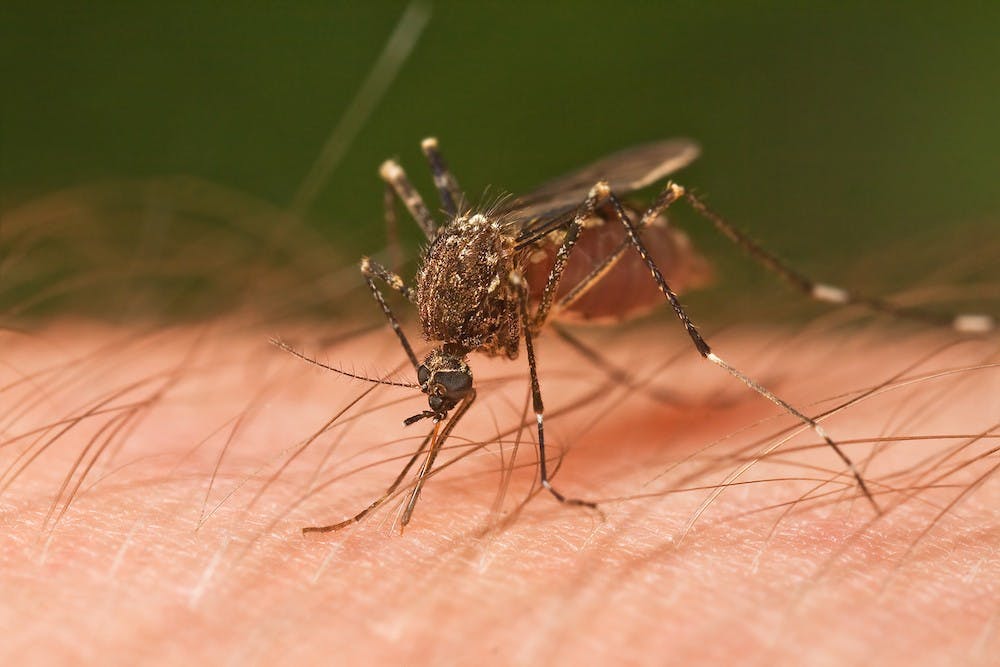University officials at the College of William & Mary confirmed on Jan. 30 that a student had contracted the Zika virus, which the World Health Organization recently declared as a global public health emergency.
The student, who is expected to recover fully and is not currently experiencing symptoms, according to a statement from the school, contracted the disease in Central America over winter break, and a University of Richmond student told The Collegian that she too had contracted Zika in Central America over winter break.
The Richmond student said the disease went away after about a week that included a lot of rest and ibuprofen.
“The symptoms were very mild,” the Richmond student said. “It started with a rash and then my eyes felt irritated. Since it was so mild I thought it was only a cold or allergies, and I didn't see that I had any mosquito bites.”
The university, however, has not treated any student with the virus, a university spokesperson wrote in an email.
"The Student Health Center has not treated any students suspected of having the Zika virus, nor has the center received calls from any students with concerns that may have the illness," the spokesperson wrote.
Fernando Gomez, a professor of biology who teaches a course on emerging infectious diseases, said the Richmond community should not be concerned that a student had the disease, because she had said she no longer has the disease and the disease would most likely only be transmitted through a mosquito that's likely not in Virginia right now due to the cold weather.
The disease is not super dangerous for adults, who would likely experience flu-like symptoms and possibly have a fever before the virus goes away, Gomez said. Deaths caused by the virus are rare, according to the Centers for Disease Control,
The danger with Zika, however, is it has been linked to a birth defect called microcephaly, in which babies do not fully develop in the womb and are born with abnormally small heads.
Zika has caused a great deal of concern in parts of Latin America where some women have been advised to delay pregnancy for years. The WHO estimated that the virus could infect about 4 million people in the Americas by the end of the year. Another danger of the disease: only one in five people infected with the virus experience any symptoms, according to the CDC.
Richmond students currently studying in Latin America are receiving information from the programs that host them, Martha Merritt, dean of international education, wrote in an email.
"The organizations who are hosting our students in Latin America are keeping closely in contact with us and with them, and we are paying very close attention to the information about the virus as it develops," Merritt wrote.
Enjoy what you're reading?
Signup for our newsletter
So far Zika has been sparsely found in the United States, but cases around the country have been more frequently reported recently. Florida Gov. Rick Scott declared a state of emergency Wednesday in four counties after nine state residents had been diagnosed with the virus.
Zika is usually spread through the bites of infected mosquitoes, but a case in Texas, however, was reported to be transmitted through sex.
Gomez, however, is not sold that Zika could be transmitted through sex, because there has been only one reported case so far, and the person infected could have unknowingly been infected by a mosquito in Texas, he said.
"I'm not casting aspersions, I'm just saying it's not a set-and-stone possibility yet," Gomez said.
Gomez said students concerned about virus should check CDC and Richmond health authority websites for updates, and those really concerned could use DEET, a popular inspect repellent.
With some students planning on traveling to countries in Central and South America for spring break, some are reluctant to change their spring break travel plans because of the virus.
Naomi Sand, a junior from Massachusetts, plans to visit her boyfriend, Juan Felipe Celia, in Barranquilla, Colombia in March.
“My mom’s warned me to be careful, especially because a lot of Juan’s relatives and even his mom have gotten [Zika],” Sand said. “She had a fever for a little, but she got better pretty quickly. Still, the thought of getting Zika scares me.”
Sand has no plans currently to cancel her trip, but she said she’s planning on taking precautions like wearing protective clothing and packing bug spray.
Gomez advises people planning on going to Latin America to take the recommend precautions.
Contact reporter Audrey Jordan at audrey.jordan@richmond.edu and editor-in-chief Jack Nicholson at jack.nicholson@richmond.edu
Support independent student media
You can make a tax-deductible donation by clicking the button below, which takes you to our secure PayPal account. The page is set up to receive contributions in whatever amount you designate. We look forward to using the money we raise to further our mission of providing honest and accurate information to students, faculty, staff, alumni and others in the general public.
Donate Now



